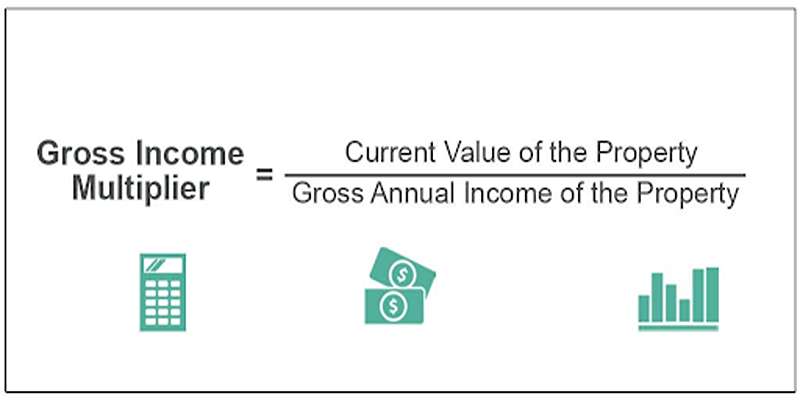Advertisement
What You Need To Know Before Investing in Domain Names?
Nov 21, 2024 By Kelly Walker
If you want to make money and create an online portfolio, investing in domain names can be a good option. However, it's crucial to have a solid understanding of how the process works before getting started. To invest in domain names successfully, you need to conduct thorough research, stay up-to-date with current trends, and understand the legal aspects of buying and selling domain names. This article will give you an overview of the key factors you need to consider when investing in domain names, enabling you to make informed decisions as you build your portfolio.
Understand the basics of domain name investing
The first to successful domain name investing is understanding the basics. A domain name is a unique web address that can be used to identify and access a website online. Domain names are an important asset for any business, as they provide customers with a simple way to locate them on the internet. It is possible to purchase both new and existing domain names.
Research the market and trends for domain names
Before investing in domain names, it is important to research the market and understand the current trends. This includes understanding what types of domain names are popular, which ones have potential for growth, and analyzing past sales data to gain insight into future value. Researching industry news and staying up-to-date on changes in technology can help investors domains are likely to grow in value over time.
Know the legal implications of domain name buying/selling
Domain names can be bought or sold on the open market, but buyers should always take into account the legal and financial ramifications involved with investing in domains. It is important to understand intellectual property law.
Know what makes a good investment in terms of potential value
When investing in domain names, it is important to consider the potential value of a particular name. Factors such as length, popularity, and keyword relevance can all affect the perceived value of a domain name. A good investment should have all these characteristics and be likely to increase in value over time.
Do your due diligence when buying or selling

When buying or selling domain names, it is important to do your due diligence. Always make sure that the seller has a reliable track record, and that the domain name you are buying or selling is actually owned by them. Be aware of any technical issues surrounding the transfer of the domain name.
Consider trademark laws and other legal issues
When buying or selling a domain name, it is important to consider trademark laws and other legal issues. It is illegal to buy or sell a domain name that infringes on the trademarks of another company. Be sure to research any potential domain names thoroughly before investing in them to ensure they are not infringing on someone else’s intellectual property rights.
Learn how to protect your investments with proper registration
It is important to learn how to properly register and protect your domain name investments. A domain name should be registered with the proper registrar and renewed regularly in order to maintain ownership. It is also wise to secure your investments with a comprehensive privacy policy and legal disclaimers. This will ensure that you can maximize the potential value of your domain names and protect your investments from unwanted threats.
Use reliable sources
When investing in domain names, it is important to use reliable sources for information and advice. There are a number of reputable resources available online that can help investors understand the process of buying and selling domain names. The best sources will provide insight into current market trends, industry news, legal issues, and best practices for protecting investments.
Know when it's time to sell or let go of a domain name investment

It is important to know when it’s time to sell or let go of a domain name investment. Investing in domain names can be a lucrative business, but there will also be times when a domain name will no longer be worth holding onto. Keeping track of market trends and the current value of the domains you own can help investors determine when it is time to sell or let go.
Investing in domains can be an exciting and profitable venture, but it should always be done with care and caution. By understanding the market and researching industry trends, potential legal issues, and best practices for protecting investments, investors can maximize their chances of success with domain name investing.
Conclusion
Investing in domain names can be a lucrative endeavor, but it is important to understand the legal implications, potential value of domain names, and how to protect your investments. By doing your due diligence and learning about the industry, investors can maximize their chances of success with domain name investing.
FAQs
What should I consider when investing in domain names?
When investing in domain names, it is important to consider the potential value of a particular name. Factors such as length, popularity, and keyword relevance can all affect the perceived value of a domain name. It is also important to do your due diligence when buying or selling a domain name, and to be aware of any legal issues surrounding the transfer.
How can I protect my domain name investments?
It is important to register your domain name with a reliable registrar and renew it regularly in order to maintain ownership. Additionally, securing your investments with a comprehensive privacy policy and legal disclaimers will help you protect your investments from unwanted threats.
How do I know when it’s time to sell or let go of a domain name investment?
Keeping track of market trends and the current value of the domains you own can help investors determine when it is time to sell or let go. Additionally, understanding the legal implications and potential value.
Advertisement

A Look at Primary and Secondary Markets

The Battle of 401(k) Providers: Charles Schwab vs Employee Fiduciary

What You Need To Know Before Investing in Domain Names?

The Ins and Outs of Revolving Credit: What You Need to Know

Best Online Bookkeeping Classes

10 Largest Software Companies

Best Call Center Services for 2023.

What Is a Gross Income Multiplier?

Best Auto Loan Rates and Lenders

